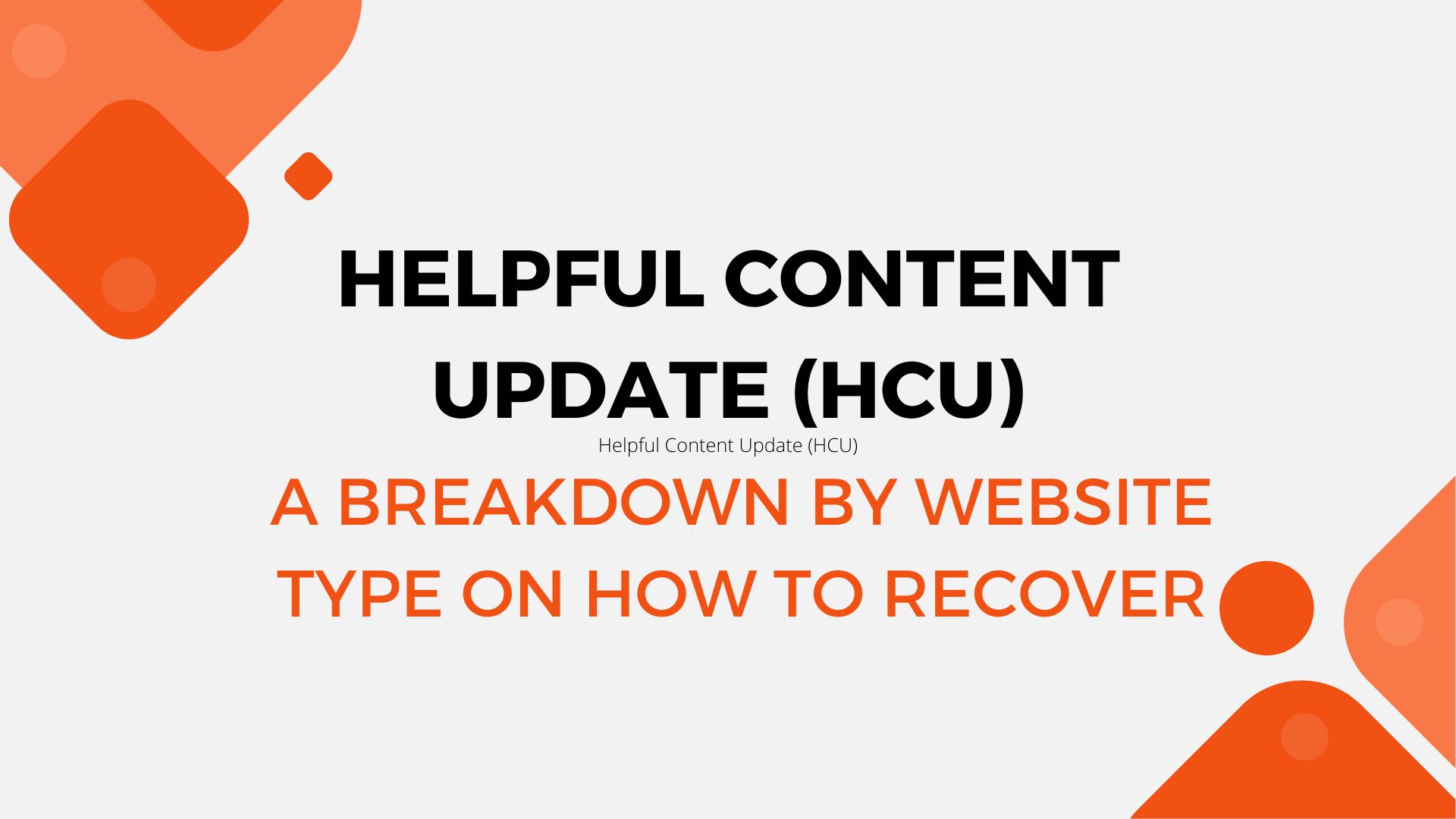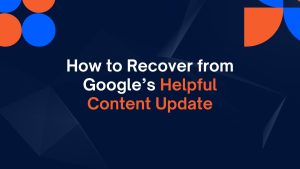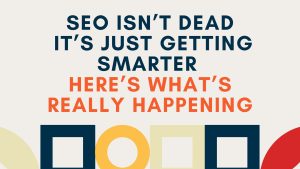Google’s Helpful Content Update (HCU) has drastically changed the way websites are ranked in search results. The focus has shifted towards content that’s genuinely helpful to users, leaving many websites with outdated strategies scrambling to recover. To better understand the effects of HCU, I recently conducted a poll to see how different website types were impacted. The results are telling, and in this article, we’ll break down what the update means for your site and what actions you can take.
Why Does Google’s Helpful Content Update Matter?
The HCU was designed to improve the user experience by prioritizing content that provides real value. Websites that focus solely on keyword stuffing, thin content, or rehashed information are now suffering. Google is making it clear: originality, expertise, and value matter more than ever.
How the Helpful Content Update (HCU) is Impacting Different Website Types
1. Blogs – Info Sites: Can Recover, But Only With Effort
The Issue: Many blogs rely on reworking old content or spinning existing topics without adding new insights or perspectives. This approach may have worked in the past, but not anymore.
Impact: Blogs that recycle content or simply summarize existing information are seeing significant drops in traffic and rankings. Google now favors unique, well-researched, and informative content that adds real value.
What You Can Do:
- Add Value: Start providing in-depth, well-researched content that covers topics comprehensively.
- Focus on EEAT: Google values Expertise, Authoritativeness, and Trustworthiness. Ensure your content is written by credible authors and reflects expertise.
- Avoid Thin Content: If your articles don’t provide real insights or are too brief, they won’t make the cut. Focus on quality over quantity.
2. Affiliate Websites: Recovery Is Unlikely Without a Major Overhaul
The Issue: Affiliate websites that focus primarily on promoting products through affiliate links often lack original content that serves user intent beyond making sales.
Impact: Since HCU prioritizes content that offers true value and expertise, many affiliate sites have seen a steep decline in rankings, as Google now favors informative, user-first content.
What You Can Do:
- Rethink Your Approach: While affiliate marketing isn’t inherently bad, Google is penalizing sites that focus too much on promoting products with little additional value.
- Offer In-Depth Reviews: Provide detailed product reviews, comparisons, and buyer guides that actually help users make informed decisions.
- Shift Focus to Content: Prioritize content that educates, informs, and builds trust, rather than just pushing affiliate links.
3. Dropshipping Websites: It’s Going to Be Tough to Recover
The Issue: Dropshipping websites often resell products without providing unique value, and they lack original content that helps users make purchasing decisions.
Impact: These types of sites are heavily affected by the HCU because they don’t provide the kind of helpful, original content that Google rewards. Google penalizes them for being low-value intermediaries.
What You Can Do:
- Create Unique Product Content: Don’t just list products—write detailed descriptions, create buying guides, and offer real value to your visitors.
- Invest in Quality Backlinks and Sponsorships: Building high-quality backlinks and securing sponsorships can help, but it’s not enough on its own. Your content needs to be a key part of your recovery strategy.
- User Experience Matters: Dropshipping sites also need to improve user experience by simplifying the buying process and providing more trust signals (like reviews, testimonials, and return policies).
4. Other Factors Impacting Website Rankings Post-HCU
While specific website types are feeling the heat from the HCU, there are other contributing factors that affect rankings as well:
- Low-Quality Content: Websites with shallow, poorly written content are being hit hard. If your content doesn’t answer users’ questions or provide meaningful insights, it’s time to update it.
- Backlink Quality: Unnatural or spammy backlinks can hurt your site’s credibility. Google’s algorithm is smarter than ever at detecting low-quality links.
- On-Page SEO: Neglecting on-page optimization (like meta descriptions, headers, and image alt text) can also harm your rankings. Be sure your on-page SEO is fully optimized to align with user intent.
What You Should Do to Recover and Thrive Post-HCU
If your website has seen a drop in rankings or traffic, don’t panic. Here are the steps you can take to improve your content and recovery strategy:
- Revamp Your Content Strategy: Focus on creating content that serves the user’s needs and provides real value. Whether it’s blog posts, landing pages, or product descriptions, make sure everything is useful, original, and engaging.
- Audit Your Backlinks: Check your backlink profile for spammy or irrelevant links. Disavow harmful backlinks and work on building high-quality, authoritative links.
- Improve On-Page SEO: Optimize your site’s on-page elements like headers, images, and internal linking to improve user experience and crawlability.
- Monitor Your Results: Use tools like Google Search Console and Hotjar to track changes in traffic and user behavior. Regularly review and adjust your strategy based on real data.
Final Thoughts: HCU is Here to Stay
The Helpful Content Update has made it clear that Google values quality over quantity. If your website has suffered from the update, there’s still hope—but recovery requires a shift in how you approach content creation. Focus on authenticity, expertise, and user value, and make sure your site isn’t just chasing rankings but genuinely helping your visitors.
Have you seen a drop in traffic or rankings after the update? Feel free to leave a comment, and I’m happy to offer insights or help you audit your site.





